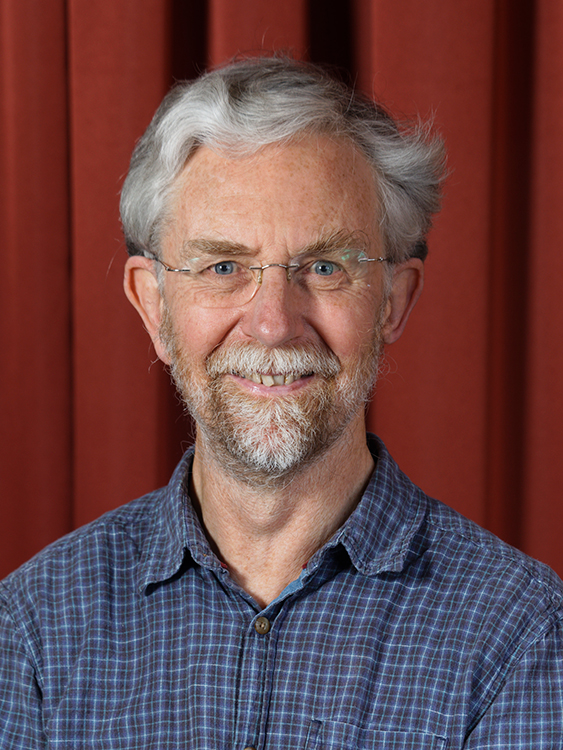Symposium and festschrift to celebrate the work of Prof. Alan Mycroft

Professor Alan Mycroft is well-known for his many pioneering contributions to programming language theory and applications, both design and implementation, ranging from compilation and optimization techniques and type systems, to parallel, concurrent and dataflow programming, but also for his work as a co-founder of the Raspberry Pi Foundation. To those who worked with Alan, he is renowned for his unstoppable enthusiasm about any challenging problem related to programming and computers, making him an inspiring teacher, mentor, and collaborator.
To celebrate Alan’s retirement, there will be a hybrid event in the early winter (1st December) with talks given from those contributing submissions both of a technical and personal nature. In early 2024 we will publish a Festschrift to mark the occasion (details below).
Festschrift
We solicit contributions to a festschrift celebrating the career and works of Professor Alan Mycroft on the occasion of his retirement from the University of Cambridge. The festschrift will be published as an issue of the Springer LNCS series.
Alan is well-known for his many pioneering contributions to programming language theory and applications, both design and implementation, ranging from abstract interpretation and static analysis; to compilation, optimization techniques, and type systems; to parallel, concurrent and dataflow programming, but also for his work as a co-founder of the Raspberry Pi Foundation and as the co-creator of the Norcroft C compiler. To those who have worked with Alan, he is renowned for his unstoppable enthusiasm about any challenging problem related to programming and computers, making him an inspiring teacher, mentor, and collaborator.
To celebrate Alan’s retirement, we solicit original contributions in all areas of programming language research, including clever hacker tricks, beautiful mathematical theories, practically useful programming techniques, novel language design ideas, and visions for the future of education and programming technology. Just as Alan does not fit any pre-existing well-defined box, we invite contributions outside the established boxes that cover a wide range of areas and use a wide range of styles. The criteria are academic interest, novelty, scientific quality, and a connection to Alan’s own work.
Submissions should follow the LNCS formatting guidelines and should be at least 6 pages, and not typically exceeding 25 pages. All submissions will be reviewed by at least three expert reviewers that will be appointed by the special issue editors, drawn from within the community.
- Submission via EasyChair
- Deadline: 7th March 2024 (AoE)
- Notification: 28th June 2024 (tentative)
Any questions please contact the festschrift editors Dominic Orchard d.a.orchard@kent.ac.uk, Tomas Petricek tomas@tomasp.net, Jeremy Singer jeremy.singer@glasgow.ac.uk.
Symposium
The event will be on Friday the 1st of December in FW26 LT2 of the William Gates Building (Computer Laboratory), University of Cambridge.
Registration. Please register by the 10th November if you intend to join the event. If you did not register in time, do not worry, please just come (but be mindful that we should give priority for lunch + refreshements to those who signed up in time).
Proceedings
Schedule
Introduction
- 09:00-09:10 - Welcome from the organisers (Dominic Orchard, Tomas Petricek, Jeremy Singer)
- 09:10-09:15 - Welcome from the Head of Department (Alastair Beresford)
Static analysis and compilation
- 09:15-09:30 - (15 min) On the NorCroft compiler (Jeremy Singer)
- 09:30-09:55 - (25 min) Static Analysis for Hardware Design (Mads Rosendahl, Maja Kirkeby)
- 09:55-10:15 - (20 min) When Obfuscations Preserve Constant-Time (Matteo Busi, Pierpaolo Degano, Letterio Galletta)
- 10:15-10:35 - (20 min) No Need to Imply Anything (Paulo Torrens)
-
10:35-11:00 - Coffee
- 11:00-11:20 - (20 min) The Contributions of Alan Mycroft to Abstract Interpretation (Patrick Cousot)
Monads, comonads, and grades
- 11:20-11:50 - (30 min) Comonadic notions of computation revisited (Tarmo Uustalu)
- 11:50-12:20 - (30 min) How to construct graded monads (Dylan McDermott)
- 12:20-12:35 - (15 min) A Tale of Two Graded Calculi: The Marriage of Coeffects and Graded Comonads (Vilem Liepelt, Daniel Marshall, Dominic Orchard)
Lunch
- 12:35-13:30 - Lunch
Post lunch
- 13:30-13:40 - (10 min) - Recollections of Alan’s early career (Ken Moody)
Programming languages and systems
- 13:40-14:10 - (30 min) Linearity, Uniqueness, Ownership: An Entente Cordiale (Daniel Marshall)
- 14:10-14:35 - (25 min) Sustainable software development - new challenges for programming, programming language design, compiler construction and program analysis (Bent Thomsen, Lone Leth Thomsen, Thomas Bøgholm)
- 14:35-15:00 - (25 min) A Symbolic Computing Perspective on Software Systems (Arthur Norman, Stephen Watt)
-
15:00-15:20 - (20 min) Programming systems deserve a theory too! (Tomas Petricek, Joel Jakubovic)
- 15:20-15:50 - Coffee
Performance, parallelism, and the real world
- 15:50-16:10 (20 min) Air quality big data analytics using low-cost sensors (Eleftheria Katsiri)
- 16:10-16:40 (30 min) Parallel Multiprecision Arithmetic the Easy Way (Cosmin Oancea, Stephen Watt)
- 16:40-17:05 (25 min) axs: a workflow automation language for omni-benchmarking and optimization (Anton Lokhmotov, Leo Gordon, Alastair Donaldson)
- 17:05-17:35 (30 min) Triemaps that match (Simon Peyton Jones, Sebastian Graf)
Closing
- 17:35-17:45 (10 mins) Closing remarks and Alan’s ‘right to reply’
Evening
- 17:45-19:00 - Drinks + canapés reception in ‘The Street’ (inside in the William Gates Building)
- 19:30-late - Dinner at The Castle Inn (pay your own way)
Important dates (symposium)
1st October - Deadline for submissions of talk abstracts or talk+paper abstracts on EasyChair14th October - Notification for talk abstracts (we don’t anticipate turning anyone away!)5th November - Deadline for any paper drafts to compile informal proceedings (though if you would like to submit to the Festschrift you need not submit a draft at this point).- 10th November - Registration deadline. This was only to get an indication of numbers for catering. Please do come anyway.
- 1st December - Event in Cambridge (Department of Computer Science and Technology) and hybrid
- 31st January - post-proceedings Festschrift deadline
Organisers and Festschrift editors
- Dominic Orchard, University of Kent and University of Cambridge (dao29@cam.ac.uk)
- Tomas Petricek, Charles University (tomas@tomasp.net)
- Jeremy Singer, University of Glasgow (Jeremy.Singer@glasgow.ac.uk)